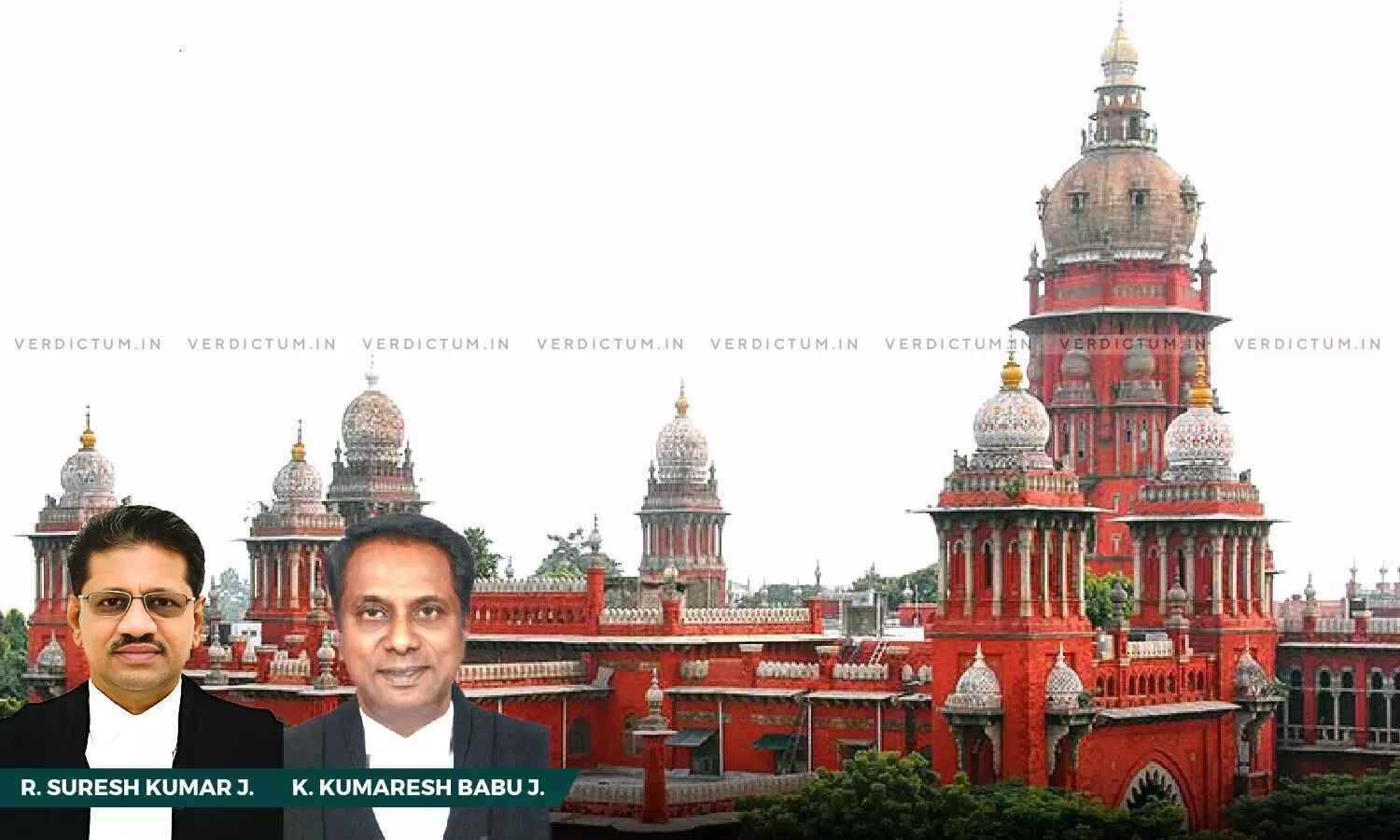
Madras HC Directs Madras University To Frame Statutes To Govern Service Conditions Of Its Employees
 |
|The Madras High Court directed the Madras University to frame statutes to govern the service conditions of its employees and also requested the State Government to look into the matter.
The Court was deciding an intra-court appeal preferred against the order of the Single Judge by which the University was directed to promote a person as Joint Director as per the recommendation of the Task Force of Distance Education Council with back-wages and all other monetary benefits.
A Division Bench of Justice R. Suresh Kumar and Justice K. Kumaresh Babu ordered, “In such circumstances, we are constrained to direct the first appellant University to frame statutes to govern the service conditions of its employees. We would also request the State Government to look into the matter. If there is a failure on the part of the University to frame such service statutes within a period of six months from the date of receipt of a copy of this judgment, we would embark to request the Government of Tamil Nadu to frame regulations to govern the service conditions of the employees of the Madras University. Such regulations would not govern the teaching faculty as they would be governed by the University Grants Commission regulations.”
The Bench said that the order passed by the learned Single Judge was without appreciation of materials available on record and contrary to the provisions of the regulations of the University Grants Commission and hence liable to be set aside.
Standing Counsel V. Sudha appeared on behalf of the appellants while Advocates P.R. Gopinathan and T. Sundaravadanam appeared on behalf of the respondents.
Brief Facts -
A person (first respondent, now dead) was appointed as a System Analyst in the University of Madras in the year 1985 on a contractual basis for a period of one year. Subsequently, computers were introduced in the University Administration and he continued in service and the same was regularized. His scale of pay was revised but his grievance was that he was denied promotion for two decades by the University and thereby he was not given an opportunity to advance in his career.
He was the only System Analyst taking all responsibilities and based on his representations, the University formed an IT Expert Committee comprising three members who held that the deceased had already enjoyed a jump and scale slide and benefits of cadre elevation. The Syndicate considered the Report of the said Committee and resolved that the nomenclature of the post of ‘System Analyst’ may changed as ‘Principal System Analyst’ in the same scale of pay. Aggrieved by this, the deceased filed a writ petition and the Single Judge held that he should be given a promotion. Hence, the University preferred an appeal against this order.
The High Court in view of the above facts said, “It is to be noted that the appellant University does not have any regulations/statutes governing the service conditions of its employees. All the decisions are taken by resolutions of the Syndicate without any parameters which is shocking our conscience. … A non-teaching staff cannot be at any stretch of imagination without applying the University Grants Commission norms could be brought under the teaching wing.”
The Court further noted that the first respondent at no point of time had participated or even applied for himself to be appointed as a teaching staff of the University based upon his qualification and he had been working as a System Analyst which has been renamed as Principal System Analyst.
“When that be so, he cannot seek to promote himself as a teaching staff who would be only eligible to hold the post as a Joint Director in the Institute of Distance Education. Therefore, at the outset, the claim made by the first respondent itself is wholly misplaced and contrary to the University Grants Commission's regulations on appointment as teaching staff”, added the Court.
The Court also said that even if a recommendation had been accepted by the Distance Education Council, it could only apply to an open University and not a Distance Education as the Task Force has been constituted only to consider and recommend broad personal policy for academic staff in the Distance Education to serve as guiding principle for all Open Universities in the country.
“We during the course of arguments had sought for certain clarifications in relation to the statutes governing the service conditions of the employees of the Universities. It was informed that there are no statutes governing the service condition of the employees of the Universities and the service conditions are based upon the Syndicate resolution passed then and there. We are pained to note that the first appellant University with such a stature & standing having been established a century ago does not have any statues governing the service conditions of its employees. When such is the position, we are afraid that there would be no transparency in the appointment and promotion of a University staff”, observed the Court.
Accordingly, the High Court allowed the writ appeal and set aside the order of the Single Judge.
Cause Title- University of Madras & Anr. v. Dr. U.T. Manisundar (Died)